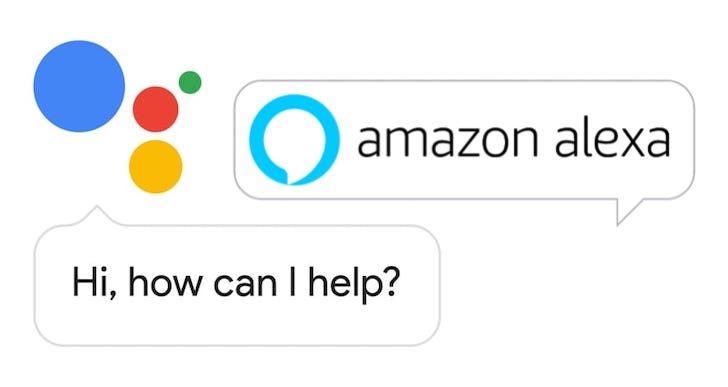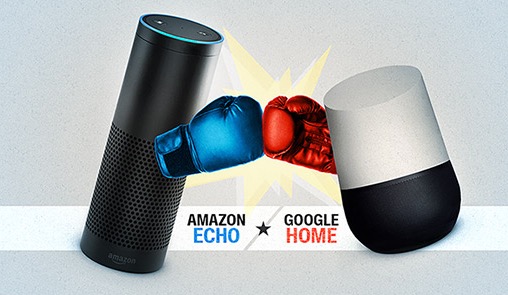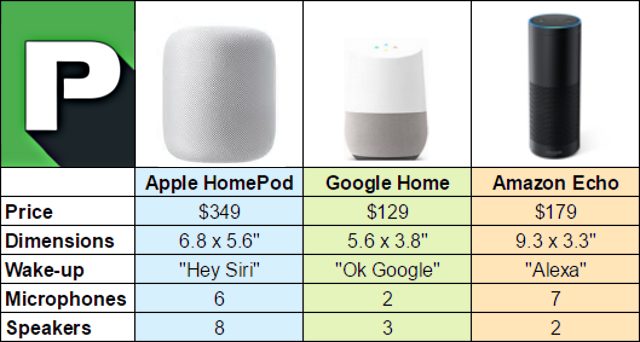Amazon bars Alexa from saying 'Google'
Amazon uses the virtual assistant Alexa while Google uses Google assistant. The competition between Alexa and Google Assistant is fierce. Amazon develops smart speaker named ‘Echo’ while Google develops ‘Google Home’. Recently the rivalry between the two develops went too and it was reported that Amazon has banned Alexa app developers from saying “Google” in their Alexa skills.

Do you have similar website/ Product?
Show in this page just for only
$2 (for a month)

0/60
0/180
Amazon bars Alexa from Saying ?Google?



AI (Artificial Intelligence) has taken a great leap into the future by powering Speakers with virtual assistants. Smart speakers are the booming new category in tech with Amazon and Google leading the way. Smart speaker is an audio speaker that you can talk to and interact with; smart speakers help you in browsing the phone details while you are occupied with some other work. Smart Speakers are internet connected virtual assistants ? just like Siri, Cortana and others ? which can answer questions, tell you the latest news and weather, play music and control smart home gadgets such as heating, air conditioning, lights and switches.

Amazon uses the virtual assistant Alexa while Google uses Google assistant. The competition between Alexa and Google Assistant is fierce. Amazon develops smart speaker named ?Echo? while Google develops ?Google Home?. Recently the rivalry between the two develops went too and it was reported that Amazon has banned Alexa app developers from saying ?Google? in their Alexa skills.

One Alexa developer accidentally discovered this by submitting a voice app to Amazon with a bug. Alexa game skill Mind Maze was supposed to remind users upon exit how to re launch the skill in the future, by saying something along the lines of: ?to play again, say ?Alexa open Mind Maze.'?
When Amazon?s review testers took a look at the skill, however, it returned the response he had built for the Google Home variation of the app instead. According to the reviewer, the skill had said: ?If you enjoy card games, you can say ?OK Google, talk to 21 Blackjack???. The skill was then promptly rejected because you can?t say ?Google? in an Alexa app.
Specifically, the reason Amazon provided is that an Alexa skill ?should not promote Google Home.?
Actual result: The skill promotes Google home by saying ?OK Google? when user utters Stop or Cancel
Expected result: The skill should not promote Google Home.
Of course, not sending Alexa skill users to a competing product makes sense for Amazon, and the bug certainly would have created a confusing experience for users had it gone live
However, it?s somewhat telling that Amazon?s rejection was not because the skill was offering the incorrect exit phrase, because it would have led to user confusion, or because it violated some sort of developer guidelines.
Amazon says the language the Amazon reviewer used was incorrect.
?We reviewed the skill and determined that the incorrect phrase could lead to customer confusion and did not accurately portray the skill functionality. The certification representative?s response was an error,? a spokesperson said. ?We do not ban the usage of brand names, although we do strive to ensure that trademarks, intellectual property, or brand names are used properly.?

An online poll in May 2017 found the most widely used virtual assistants in the US were Apple's Siri (34%), Google Assistant (19%), Amazon Alexa (6%), and Microsoft Cortana (4%). A majority of the market players are focusing on expanding their product portfolio and regional presence via merger and acquisition. Also they have become more willing to spend on innovations to enable intelligent virtual assistant usage across diverse applications. This trend is gradually picking pace, as more companies provide utilities such as self-service, access to internal employee guides, improved customer experience, and intelligent reporting.
CONTINUE READING
Technology
Business
News
International
Sandeep Semwal
Content Writerq
